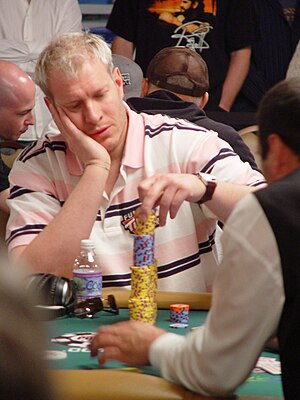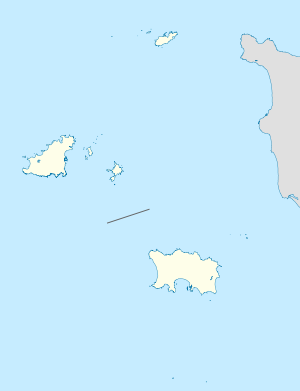This very afternoon I received in my box, courtesy of the Guernsey Post, the April 2011 Presidential Newsletter.

Image via Wikipedia
Sir Norman explains very well many of the subtleties of the
constitutional legal background to the appointment of the Speaker of the House of Commons, the Bailiffs of Guernsey and Jersey, and of our own Presiding Officer, the President of the States of Alderney.
But then he goes on to state that the President of the States ‘has a mandate’ (that is to say, a political role) because he or she is elected by the People, not appointed.
With respect to Sir Norman’s 10 year Presidential reign, the President’s role as ‘the States’ conscience’ does not derive from the relatively modern innovation of popular election (which has only been the case since 1948) but is inherited from the ancient customary law duty of the Juge (judge) in Alderney, the same duty being upon the Bailiffs in Guernsey and Jersey, to ensure that the States Members were fully informed of the views of the People. That duty came about in ancient times when the majority of Islanders could neither read nor write.
A former Bailiff, quoted in a case in the European Court, said: “In Guernsey, the Bailiff “is the Island’s chief citizen and representative”. Speaking of the casting vote, he went on to say “in Guernsey, in general, the Bailiff uses his voice to ensure a further investigation of questions on which the States are in doubt”.
It cannot be doubted that, in Alderney, that role is carried out by the President, and the Presidential office is the successor-in-law to the last Juge (Judge Sir Frank Wiltshire). Furthermore, it must be the case, as an integral part of the Bailiwick, that same constitutional conventions that applies to the Bailiff in Guernsey must apply to the President when carrying out the same role, such as when the States is faced with an equally divided vote.
Yet in his newsletter, Sir Norman goes on to set out the circumstances in which he believes when the President may take on a political role, although he says these circumstances are limited.
As respected scholar Peter Hogg wrote: “Conventions are rules of the constitution which are not enforced by the law courts. Because they are not enforced by the law courts they are best regarded as non-legal rules, but because they do in fact regulate the working of the constitution they are an important concern ….”
With very the greatest of respect, I feel that Sir Norman’s assessment of the circumstances a President may be political is entirely wrong.
The President should never take on a political role – his job is, above all — in the House — to keep the politicians in line.
And, in plain language, he cannot be a player as well as a referee.
Any time the President joins in to the political fray, it seems to me, no matter how infrequently, he diminishes the respect for, and effectiveness of the office. Fortunately that has not, so far as I can remember, happened on more than one or two occasions in the last 10 or 12 years.
Finally, there seems to be a contradiction in the Newsletter. If we accept after all that the President has any political role (although I say he should not have), it follows that any candidate for that role cannot be inhibited from campaigning for the office. Indeed to do so, would deny the very mandate that President Browse suggests that he has.
In any election it must be for the People, not an elected politician, no matter how respected, to judge if a style of campaigning is appropriate or not, using their ultimate power, that of their vote.
And, as a democracy, we should trust the electorate to decide who is the better candidate.
I therefore look forward to the May Billet and to learning who the candidates for the forthcoming Presidential Election in Alderney shall be.
















